
|

|

|

|

|

|

|

|

|

|

|

|

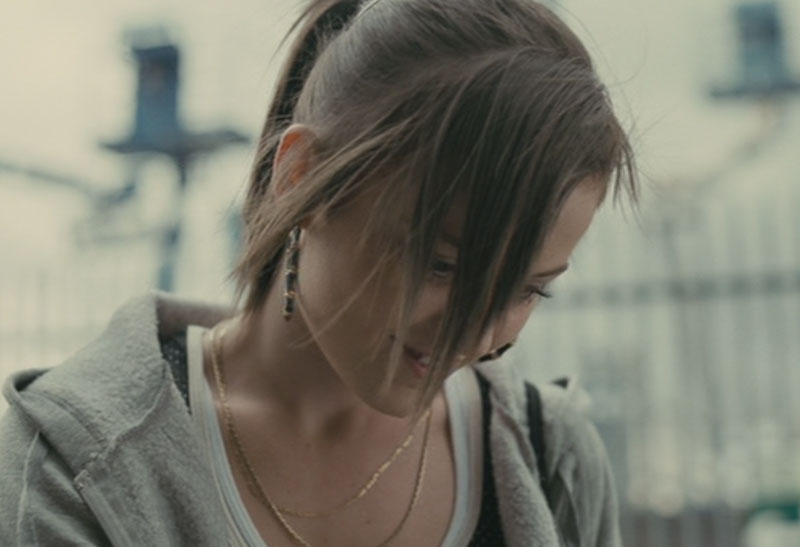
"Estate of Mind"
Andrea Arnold sets her teacup back on its saucer and flicks her eyes around the heavy paneling and drapery of London's Covent Garden Hotel, where she is hotel up all afternoon giving interviews. "The thing about the film industry is that its incredibly middle-class, isn't it?" she says. "All the people who look at it and study it and talk about it write about it are middle-class, so they always see films about the working class as being grim, because the people in the film don't have what they have. I very much get the feeling that I'm seeing a different place. People at Cannes kept asking me about grim estates and I thought, ugh, I don't mean that. I tried not to mean that."
The Essex estate in question in the setting for her new film Fish Tank depending on how your sliding scale of poverty is calibrated it's not so bad, really. Certainly it's paradise compared to the looming, low-res menace of the Glasgow tower block in Arnold's feature debut Red Road (2006), where the tectonic plates of death, sex and revenge crunched together with such riveting inevitability. Fish Tank, the story of a troubled girl struggling to relate to her own physicality, builds up some fairly seismic emotional pressure too, but it's not so much the fault of the shabby, banal setting as of the cultural and emotional limitations of modern life.
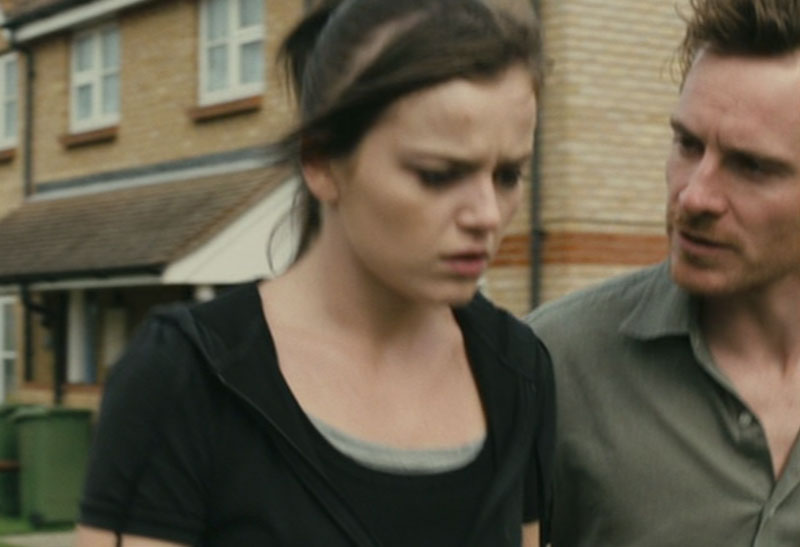
Arnold is regularly compared to Ken Loach ("Don't insult him! He must be getting sick of it!"), but her new film's depiction of council-flat life recalls just as much the cheery survivalism of Penny Woolcock's 'Tina' films, or even television comedies like Shameless. "I actually think estates are great places," Arnold insists. "They're full of people, they're full of life. I mean, that's how most people live. It's probably a better way to live than a lot of middle-class lives which are more isolated and more lonely and have less community. So I'm kind of dismayed by the reaction."
In a culture increasingly sedated by and addicted to the myth of salvation through show business, celebrity is often presented as an easy solution for the disenfranchised dreamer. But Arnold who cites Saturday Night Fever as a guilty pleasure viciously undercuts all our expectations is Fish Tank. "Obviously dancing is the one thing Mia feels she can do," she says, "and that's her escape, the way in which she can get some self-esteem. She's probably like one of those people who go to The X Factor and get turned away, who aren't so good she's one of those, really, one of the many. My heart breaks when I see that, not because they don't get through, but because they see as some answer in life, as a way of finding contentment or happiness. To aspire towards celebrity that's what makes me feel sad. People think they can have anything and they can't."
Mia, though, is no dewy-eyed young trouper, nor is she as innocent as she might first appear. As she negotiates two key relationships with her mother's new boyfriend Connor and Billy (Harry Treadaway), a traveller lad who recognizes her as a fellow outsider we're repeatedly asked to reassess our reactions to Mia and our assumptions about her. One quality Arnold says she likes about the film is its ability to trip its audience up: "Somebody said to me: 'When I"m watching your films, I'm always sitting there saying, "Don't go there, don't go there...' And you always go there.' And I think that's probably it. I'm really interested in characters who behave in quite difficult empathy with somebody who does that."
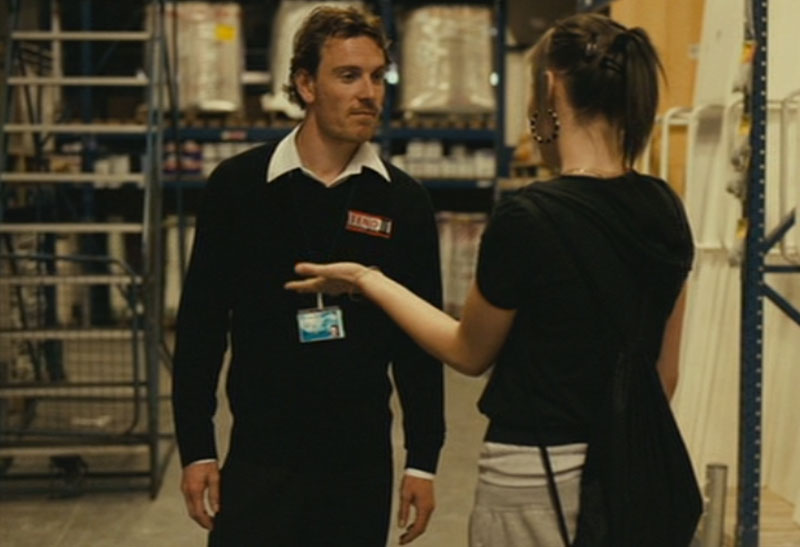
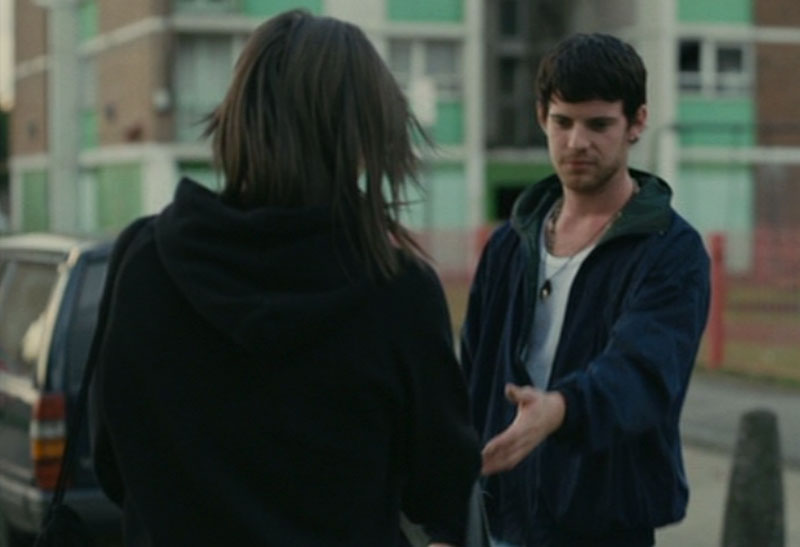
Perhaps part of the reason that Mia's development is so vividly realized is that Katie Jarvis was experiencing her own rite of passage out here in real life, and real time. As an untrained actor (she was cast after a chance encounter at Tilbury Town railway station) who also had to take intensive dance lessons for the role, she found herself suddenly tasked with carrying a film where she's the emotional centre of every scene. In order to help Jarvis stay on top of the narrative arc, Arnold decided to shoot the film in chronological order; she withheld the full script not just from Jarvis but from all the actors, revealing the plot to then only a few days in advance to keep their reactions real.
"For Katie not to have the whole film in her head was quite good, because it was quite a lot to take on," says Arnold. "It was a big experience for her, and it shows. There's a very definite feel about her at the end she feels older somehow."
Jarvis brings a vividness and immediacy to the role which invite interesting comparisons with the efforts of more technically sophisticated actors Samantha Morton in Lynne Ramsay's Morvern Callar, say and bring an extra layer of tension to a film that often threatens to slip over the cliff of credibility, then manages to yank itself back from the edge.
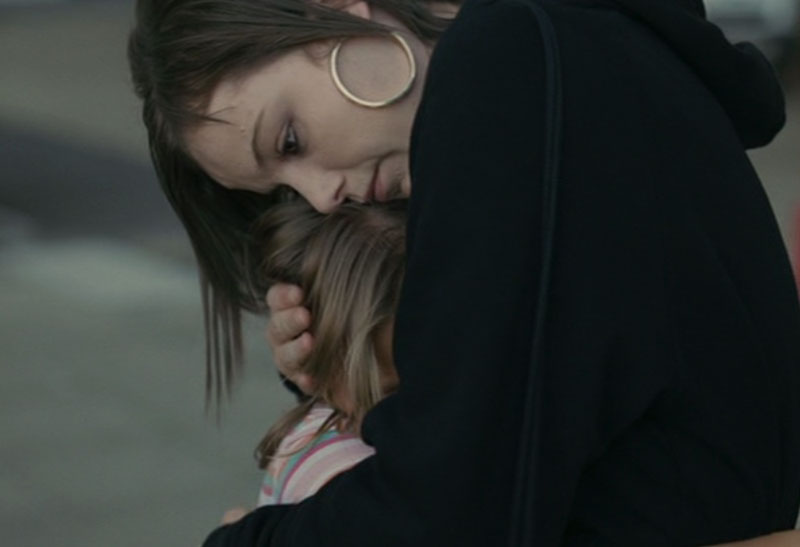
Casting an unknown was a nerve-racking decision for Arnold: "It seemed like a massive risk," she admits. "I just didn't know if she'd be able to do it." But it was even more stressful for 17-year old. "Professional actors have learned professional attitudes to their work," Arnold points out. "Bur Katie hadn't done anything like that. She was just out of school. I don't think she'd ever done a job, or was used to a working day. We worked ten hours a day, which isn't too bad but to her seemed very long. She'd get very tired, which is understandable. She needed a lot of looking after."
For one thing, Jarvis had to negotiate the social rules of a new peer group, who expected her to share their fluid grasp of personality and reality.
"When we were doing the scene with the traveller boys," Arnold recalls, "they were staying in character off camera. Katie went up to speak to one of them and he just blew smoke in her face, and she was absolutely furious and came over to complain to me about it. And I said, 'But that's not them they're just normal, regular, really, nice blokes. They're just pretending. "She really found that hard to understand, so I had to get them to come and speak to her normally. She'd believed them it's a testament to their acting, if you like."
